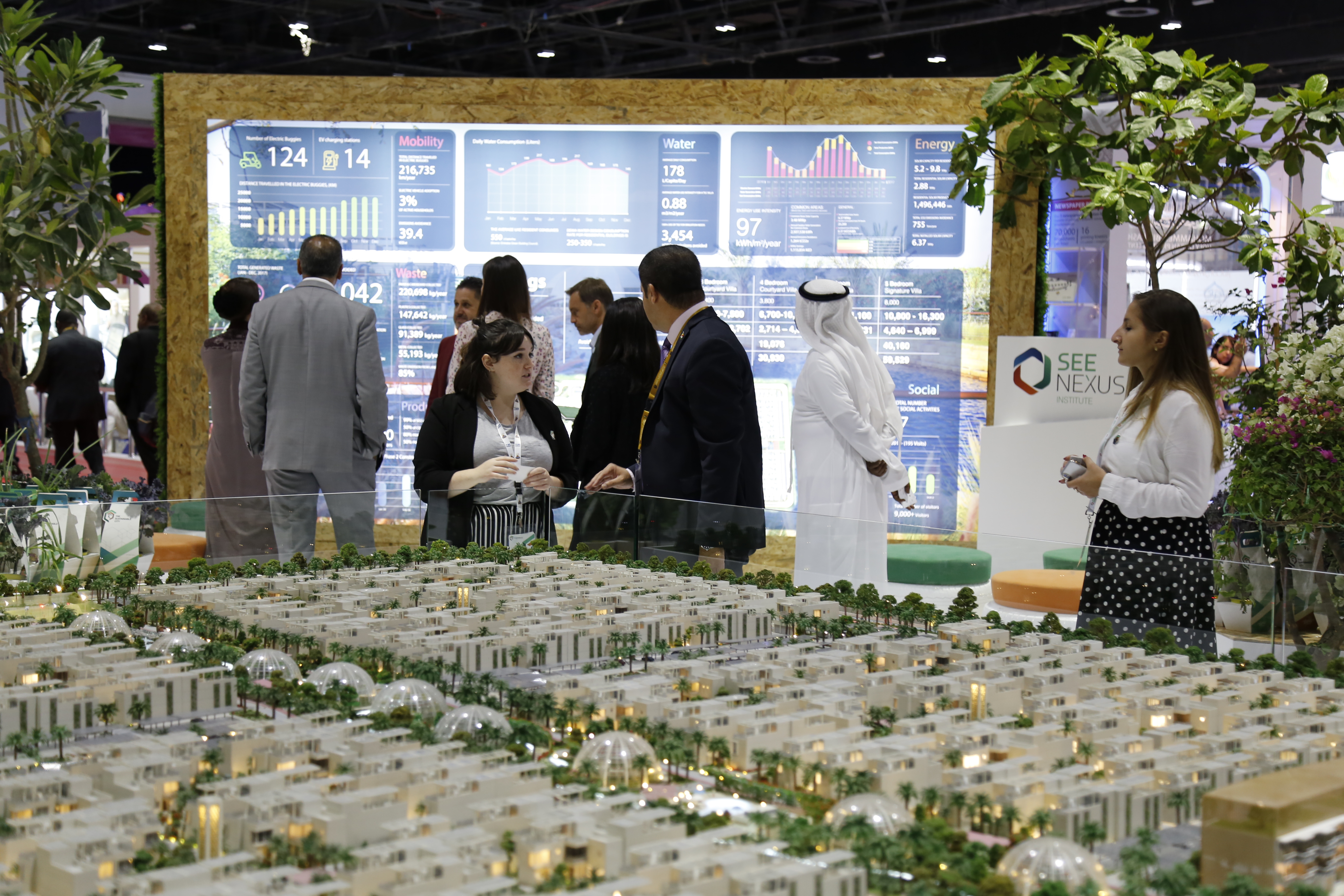
The Sustainable City reveals latest monitoring results at Future Cities Show
The community is achieving significant measurable outcomes across the environmental, economic and social pillars of sustainability
The Sustainable City, the Middle East’s first fully-operational sustainable community, has revealed some of the latest results from monitoring the city’s performance over the past 12 months during the Future Cities Show 2018, which ran from 9th to 11th April at the Dubai World Trade Centre. According to the data provided by SEE NEXUS Institute, The Sustainable City is continuing to achieve significant measurable outcomes across the environmental, economic and social pillars of sustainability.
Faris Saeed, CEO of Diamond Developers — the developer behind The Sustainable City — commented: “The concept of ‘future’ cities’ has been realised at The Sustainable City, where people are enjoying a happy, healthy and low carbon lifestyle. We also continue to research, develop and innovate by testing new technologies in the city like vertical farming, humidity harvesting and the soon to start autonomous electric shuttle in collaboration with Dubai’s Road and Transport Authority.”
In the past 12 months, The Sustainable City has managed to avoid 6,554 tons of carbon emissions from the varies sustainable measures practiced within the community, which is equivalent to 670 SUVs taken off the road for one year.The numbers and statistics shared during the exhibition show that the annual water consumption in the city was 178 litres per person per day, which is 40% lower than the average resident water consumption in Dubai. The average waste generation in the city is only 1.17kg per person per day, which is 60% lower than the average residential waste generation in Dubai, and The Sustainable City has also diverted 85% of its waste from landfills.


